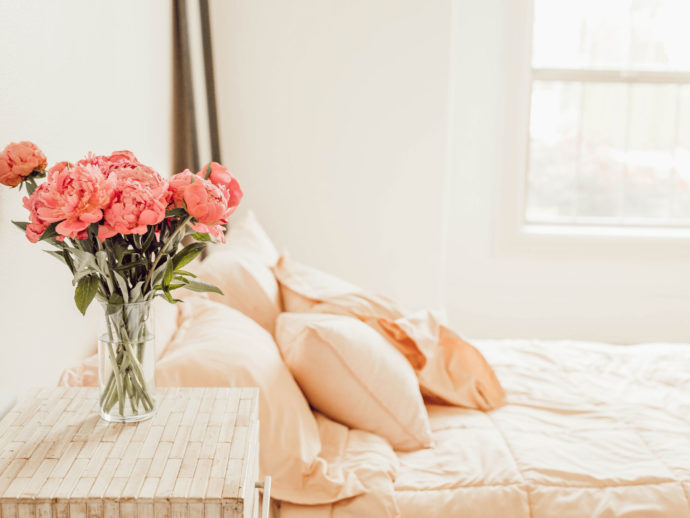Refresh your space to sleep better, tonight
Can’t sleep? You’re not alone. An estimated 35 percent of adults don’t get adequate sleep. Lack of sleep can contribute to daytime drowsiness, irritability and poor concentration, as well as chronic health concerns such as an increased risk of heart disease, obesity and diabetes. Thankfully, there’s a lot you can do to get a better night’s sleep.
Sleep hygiene
The term “sleep hygiene” refers to practices that help promote sleep quality. Some of the most important sleep hygiene habits include the following.
- Avoid stimulants like caffeine and nicotine several hours before bedtime.
- Get plenty of exposure to light during the day.
- Limit exposure to light before bedtime and during the night. Common culprits are screens and electronic devices.
- Try to wake up and go to bed at approximately the same time every day—even on weekends and holidays.
- Follow a relaxing bedtime routine. This can include a warm bath, a cup of caffeine-free tea or a reading a book.
Bedroom design
Your bedroom itself can get in the way of a good night’s sleep. Help promote relaxation by making your private space special, comfortable and sleep-inducing.
1. Consider investing in a feather bed
A feather bed, slipped over the mattress and under your sheets can transform even a hard mattress into a soft cloud.
2. Experiment with duvet weights
While some find it comforting to sleep under a heavy duvet, others may feel suffocated. Shop around to find the duvet weight that works for you. Remember that duvet weights can also have a huge effect on temperature. There are options available for every season and personal preference.
3. Adjust the temperature
Being too hot or too cold can affect the quality of your slumber. Experiment with your thermostat and windows until you get it just right.
4. Cover the windows
If you don’t have blackout blinds, layering a valance above the windows with heavy drapery can help keep the light out.
5. Soundproof your bedroom
If your bedroom is near the family room, or if you have noisy teenagers in the house, adding upholstered panels to the wall can help to keep out sound and make your bedroom a tranquil space where your mind and body can relax. Some people find white noise comforting—consider a humidifier or white noise machine.
6. Opt for an organic mattress
Sleeping on a synthetic mattress can feel like wearing a polyester shirt. Organic mattresses breathe better and prevent you from overheating. Proper airflow around your body can feel much more comfortable.
7. De-clutter
Clutter can cause stress, making it difficult for you to fall asleep. Create a peaceful oasis by making sure you have enough storage furniture and keeping your room tidy.
8. Create pleasant odors
A German study found smells can influence the quality of sleep. Move the laundry hamper away from the bed and sweeten your dreams by adding potpourri or soothing oils such as lavender to your nightstand.

